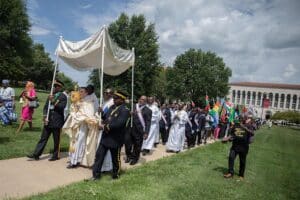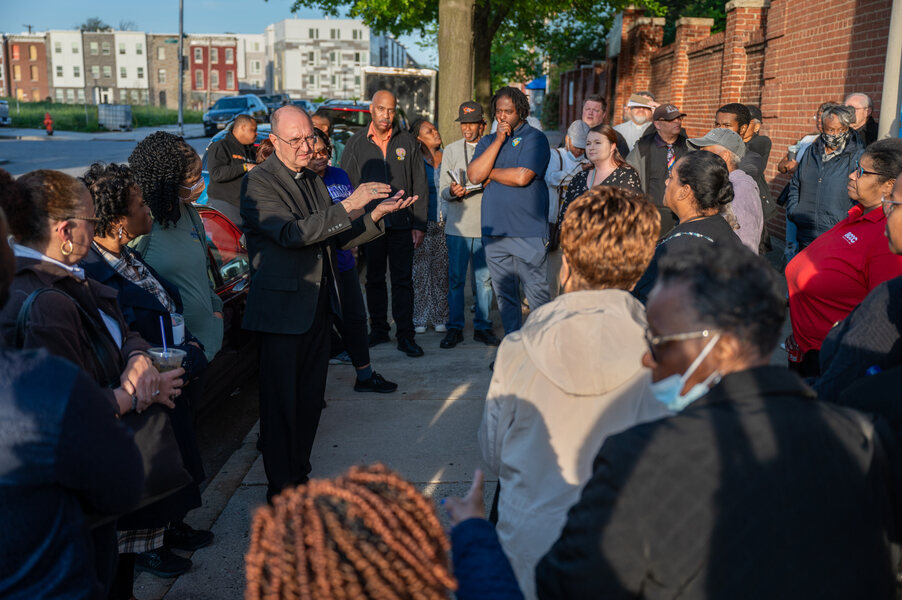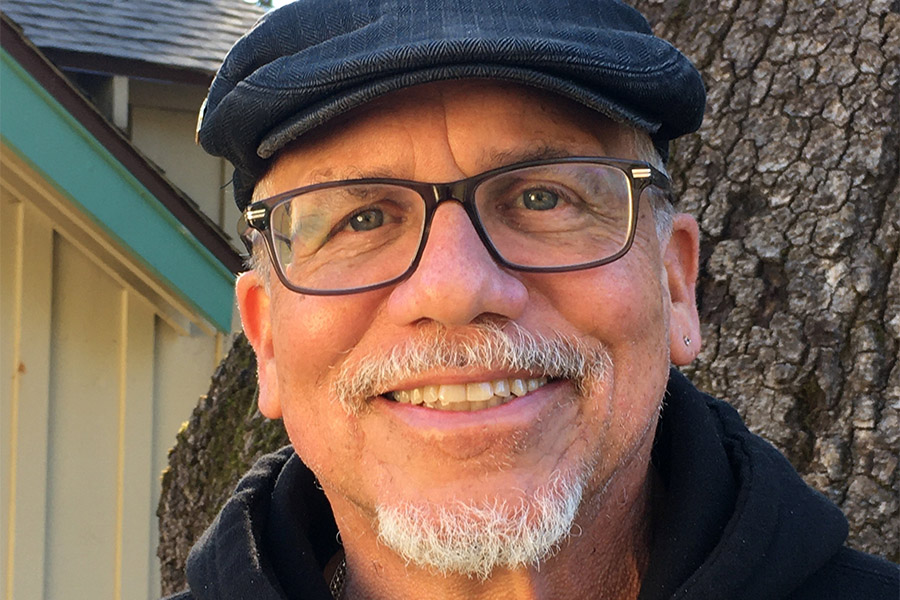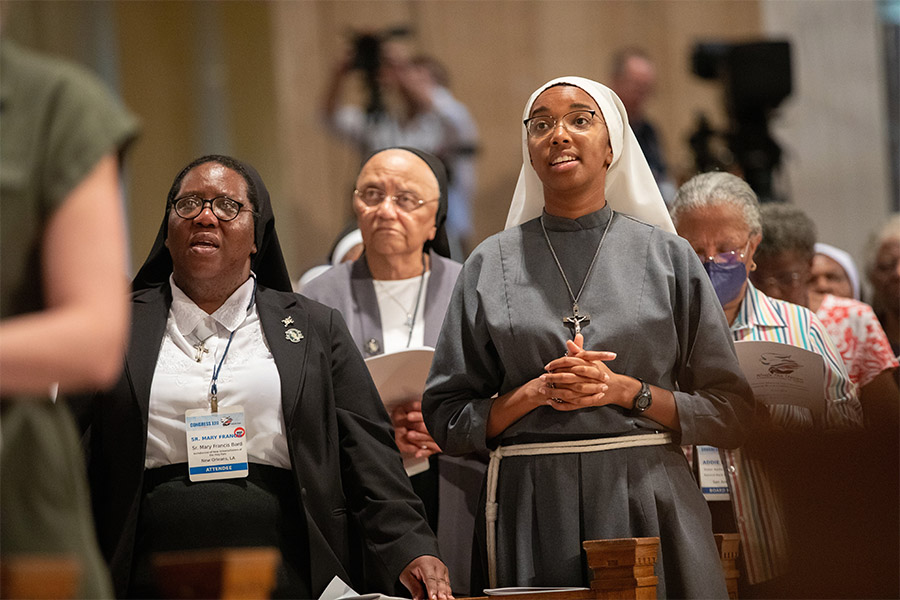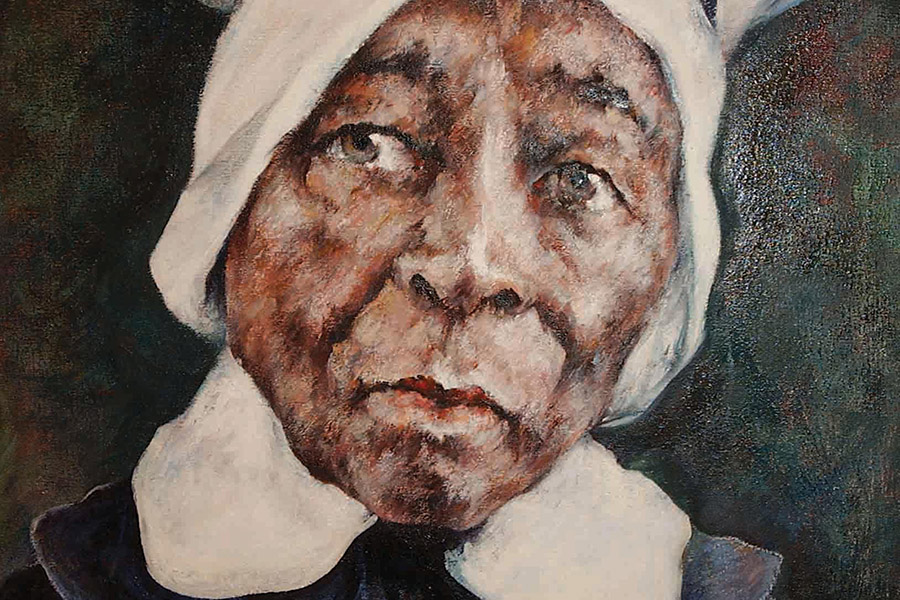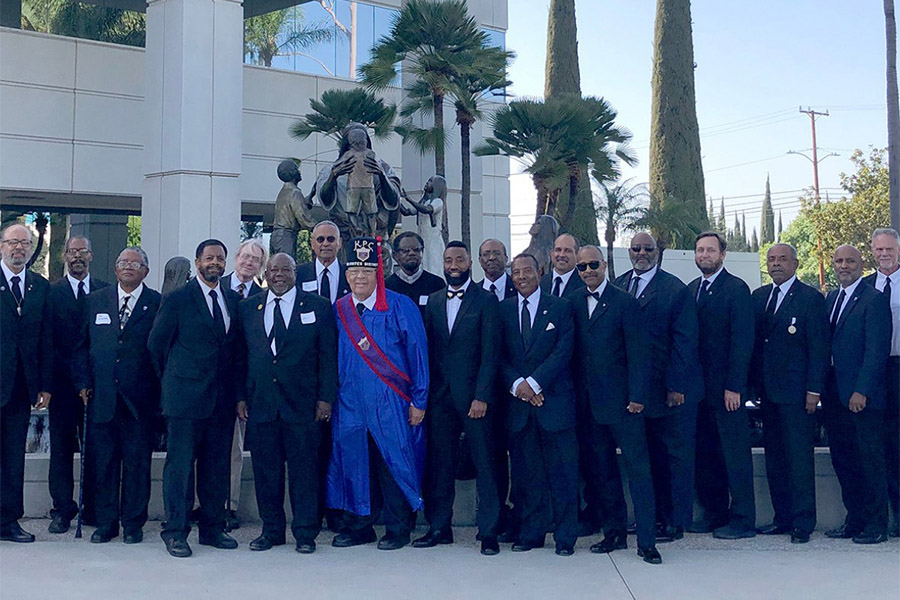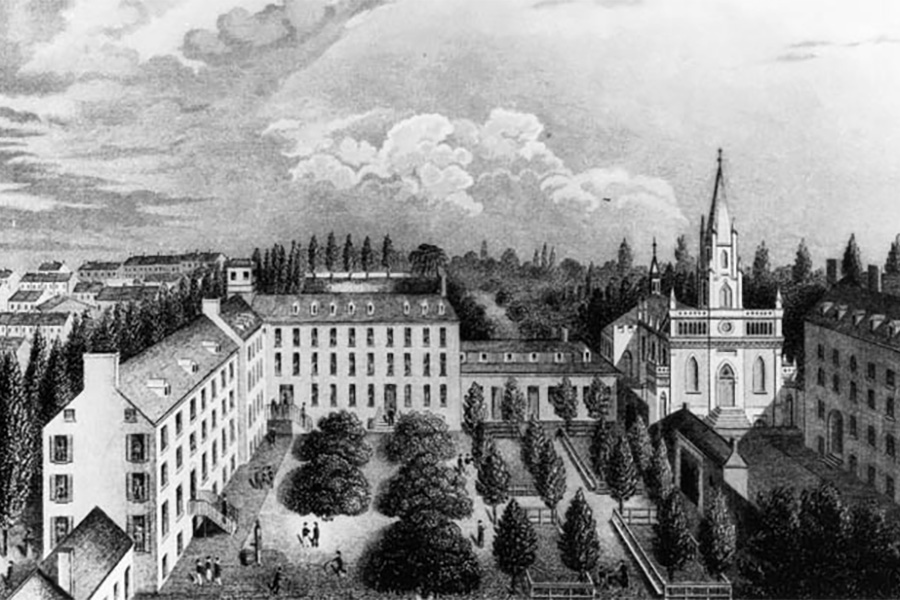WASHINGTON, D.C. – The African National Eucharistic Congress allows Africa-born Catholics in the diaspora to do something that would have been nearly impossible to do in their homelands: to meet their fellow African Catholics and learn about their cultures while growing in the Lord’s love.
Some of the estimated 500 participants in the congress – which met in Washington on July 21-23, 2023 at The Catholic University of America –shared the stories of what brought them together to celebrate their faith.
Michael Miti-Kavuma, a native of Nigeria who has been in the United States for 40 years, said few if any Africans would fly to Washington just to attend this Eucharistic congress, as airfare runs about $2,000 for a round trip. But Africans who have moved to America can make their way to Washington or other parts of the country to meet their fellow Catholics in the diaspora, as the experience of leaving one’s native home is an experience they share.
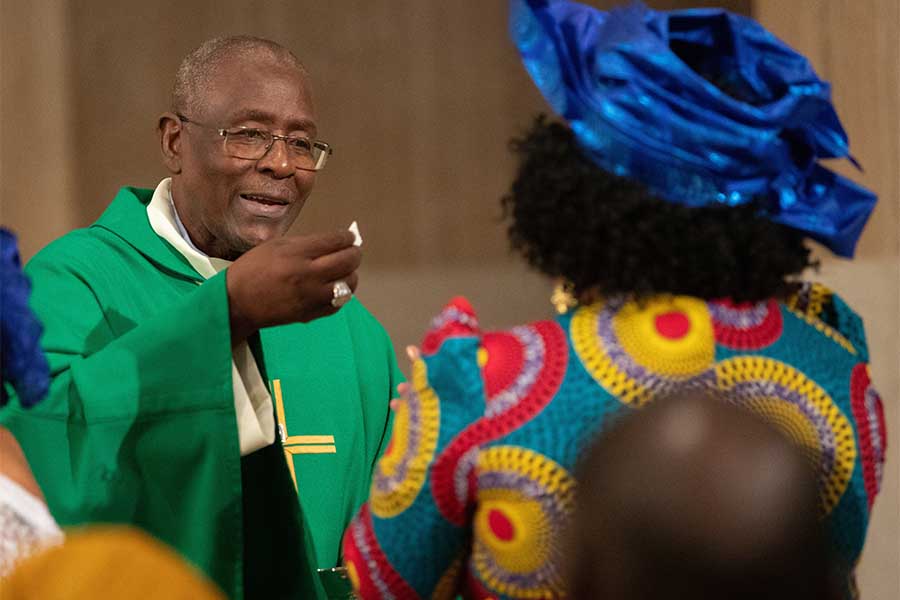
While Miti-Kavuma might not have made a friend from East Africa while in Nigeria, on these shores “we don’t have a choice. We have to communicate,” he said. And communication he added, “comes naturally.”
The experience of worship is different for African Catholics in the states. “We don’t know the priest intimately,” as they would have in their towns and villages, Miti-Kavuma said. Back home, “the whole village goes to church, so we know who everybody is, pretty much,” he added.
Sister Emily Iyelumi, an African-raised Sister of the Sacred Heart, now ministers in New Orleans 20 years after she first entered religious life. Being assigned to the United States had its own challenges, she acknowledged. “You are going to another culture,” Sister Iyelumi said. “How is it going to be?”
But “it makes me feel warm” that she is somewhere where nearly every other living African has experienced the stress of making their way to America, and have seemed to have gone through the experience none the worse for wear.
At the Eucharistic congress, “we come together as one, regardless of origin,” Sister Iyelumi said. “We do have the Eucharist,” and with that in mind and heart, she added, “we imagine what heaven is going to look like.”
Ada Chukwu left Nigeria 46 years ago to join her husband, who had left the country earlier to find work in the United States. Despite not being a Catholic at birth – her husband was, though – she was given the name Ada at birth, which in her native tongue means “daughter,” while Chukwu means “God.”
“I’m the daughter of God,” she said.
Chukwu said she wanted to grow spiritually at the congress. Despite her placid demeanor and ready smile, she took a more self-critical eye as to what she hoped to get out of it.
“To relate to people, to spread the Word,” Chukwe said, “to be kinder to people and to understand where they are coming from. They have their baggage, and I should not be so quick to judge. I hope to spread the Good News and behave better than I did before.”

Nma Rose Nnoga, another Nigerian native – Nigerians, if they didn’t comprise a majority of Eucharistic congress participants, were surely a plurality – arrived in the United States 44 years ago to reunite with her husband, who had come to the states to continue his studies.
Having settled in Camden, New Jersey, to raise her family, Nnoga said she wanted to return from the congress with “peace, peace of mind, to be more open to the love of God – the love of God in the Eucharist. … And, when I receive the Eucharist, to be more open that I have to share” God’s love.
Ikecukwu Wegt has lived in the United States only 17 years by comparison, but he has shuttled back and forth between the U.S. and his native Nigeria to get advanced degrees. In the states, he has acquired two master’s degrees and is currently pursuing a doctorate at the Jesuit-run University of San Francisco while living in San Jose.
Wegt has attended a past African National Eucharistic Congress. At these events, he said, “I get to experience the Body of Christ” in the other participants.
“There are world Eucharistic congresses attended by (Pope St.) John Paul, Pope Francis,” he noted, “and then there are those of this type,” he said. “We get to experience different experiences of faith” with the African National Eucharistic Congresses, to see how Catholics from one part of Africa express their faith in a way he had never seen before.
Not every congress participant was born in Africa and been in the United States for decades. Nneama Ngene, 21, and her 18-year-old sister Ogoma, both of whom will be attending the University of Pittsburgh come fall, were both born in the U.S. to Nigerian parents.
For them, college presents its own sense of hurdles. Not only are they hundreds of miles from home, but there are fewer Black Catholics and less of a network in and around the campus than at home, where they each went through 12 years of Catholic schooling.
Nneama said they have both found the congress’ sessions and workshops to be helpful and have served to buttress their faith lives.
The congress was hosted by the U.S. Conference of Catholic Bishops’ Secretariat of Cultural Diversity in the Church; the National Association of African Catholics in the United States; and the African Conference of Catholic Clergy and Religious in the United States.
Read More Black Catholic MInistry
Copyright © 2023 Catholic Review Media
